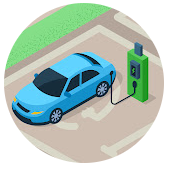
Understanding the Impact of Tariffs on Energy Transition
As the clean-energy movement gains momentum, an undercurrent of uncertainty looms large, particularly surrounding the implications of tariffs on energy transition. With a backdrop of global decarbonization efforts and the quest for European energy independence, the dialogue surrounding tariffs has intensified. How do these tariffs influence the technologies driving the energy transition, and what does it mean for small to medium business owners?
Tariffs and the Clean-Energy Landscape
Today's energy landscape is shaped by a complex interplay of geopolitical factors and economic challenges. The imposition of tariffs—government-imposed taxes on imported goods—can disrupt supply chains and escalate costs across the board. Specifically, for clean technologies, tariffs might lead to a bottleneck that could delay adoption rates. For instance, if tariffs on solar panels or electric vehicles increase significantly, manufacturers and end-users may face higher prices, resulting in decreased demand for these essential technologies.
The Three Scenarios Affecting Clean Energy
Based on recent analyses, we can identify three potential scenarios that detail how tariffs might impact the supply chain of clean-energy technologies:
- Productivity Acceleration: This status quo scenario maintains high tariffs on essential clean technology imports. Here, tariffs could temporarily slow adoption without significantly altering long-term market trends.
- No Real Disruption: If tariffs remain moderate, the impact on clean technology adoption will be subdued, allowing businesses to maintain momentum in their sustainability goals.
- High-Tariff Enforcement: In a reality where tariffs soar, particularly on critical components from countries like China, we might see a stalling of renewable energy initiatives, primarily in the United States.
No matter the scenario, businesses must be prepared for fluctuations in technology costs. With higher production prices, the burden often falls on small to medium enterprises who may struggle to reinvest in essential technologies and sustainability initiatives.
Decisions for Business Owners in an Uncertain Landscape
For small and medium business owners, understanding the potential effects of tariffs on clean-energy technology is crucial. These decisions involve not only immediate cost considerations but also long-term strategic planning for sustainability commitments. Investing in innovative solutions—such as AI-based web development tools—can help businesses streamline operations, leading to better adaptability to changing market conditions.
Looking Forward: Preparing for the Future
The energy sector is evolving, characterized by rapid changes and uncertainty. For owners in sectors that rely on energy transitions, such as automotive, technology, or manufacturing, evaluating potential tariff impacts today can influence significant savings in the future. Staying informed about tariff developments and continuously adapting strategies will be pivotal as businesses navigate through these challenges.
Actionable Insights to Navigate Tariff Implications
Business owners can take proactive steps to mitigate the impacts of tariffs on their clean energy investments. Emphasizing flexible supply chains, exploring diverse sourcing strategies, and leveraging automated tools for energy management can provide agility in times of uncertainty. Additionally, engaging with government and advocacy groups can ensure that the interests of small to medium businesses are represented in tariff discussions.
Conclusion
The influence of tariffs on the clean energy transition is a matter of growing concern as business leaders strategize in an evolving global marketplace. By understanding potential impacts and preparing for various scenarios, businesses can navigate through uncertainties more effectively, paving the way for efficient and sustainable operations. Take action today: evaluate your strategies and start planning for the future to ensure you are not left behind in this critical transition.
 Add Row
Add Row  Add
Add 




Write A Comment